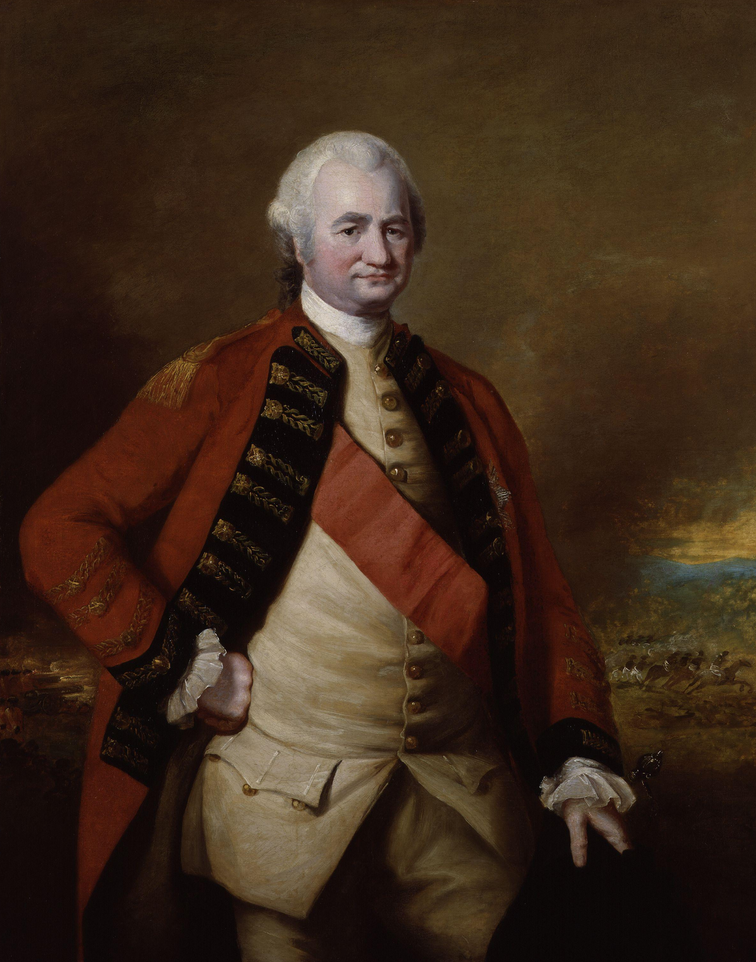Editor’s note: The following is extracted from Heroes of England, by J. G. Edgar (published 1910).
In the early part of the eighteenth century, there lived near Market Drayton, in Shropshire, a plain man, named Richard Clive, who was engaged in the profession of the law, and in the cultivation of a small estate, which had belonged to his ancestors since the days of the first Plantagenets. This Richard, who does not appear to have been a person of particular capacity or intelligence, espoused a lady from the town of Manchester; and she, in the year 1725, made him father of a son, destined to be known to fame as founder of the English empire in the East.
Robert Clive, who first saw the light at the old seat of his ancestors, near Market Drayton, did not in early youth impress his relatives with the conviction that he was born for greatness. In childhood he exhibited an extraordinary love of mischief; and this passion, which increased with his years, was indulged without stint. At the age of seven, his tendencies in this direction had become so strong that they filled his relatives with alarm, and even struck terror into the inhabitants of Market Drayton. Bob Clive, as everybody there knew, flew into a violent passion on the most trifling annoyance — utterly repudiated the idea of being guided by his seniors, and was ready to fight battles with his comrades on any pretext whatever. One day, he startled the people of Market Drayton by climbing to the high steeple, and seating himself on a stone-spout near the top; on another occasion, he surprised them by forming all the most mischievous boys of the town into a predatory band, and levying a species of “black mail” on the shopkeepers, in consideration of preserving their windows from being broken.
At school, Clive was regarded as a dunce, and denounced as a scapegrace. First, he was sent to a seminary at Lostock, in Cheshire; next to Market Drayton school; then to Merchant Tailors’; and finally to a private academy at Hemel Hempstead. At each of these he earned for himself a bad name. His aversion to study the teachers found invincible, and he left school without having made any progress in learning. It appears, however, that one of his schoolmasters, who happened to be capable of looking below the surface, could not help seeing that there was enough of natural talent about the idle, mischievous boy to enable him, if spared, to make a great figure in the world. Richard Clive, however, despaired of his son doing any good, and was not sorry when young “Bob” obtained a writership in the service of the East India Company. With the blessing of his parents on his head, and a little money in his pocket, Clive sailed from England to push his fortune. He was in his eighteenth year when thus launched upon life.
Madras was the place to which Clive was appointed, and there he landed, after a very long voyage, during which the ship had been at the Brazils for many months. At the Brazils, Clive spent all his money; so that he landed at Madras with an empty purse and a somewhat heavy heart. His plight, on the whole, was not enviable. He pined for home, lost his temper, and several times was in danger of losing his post. On one occasion, he was commanded by the governor to apologise to a secretary whom he had insulted. He obeyed, and the secretary, wishing to show that no offence was taken, asked him to dinner. “No,” said Clive, with a haughty gesture, “I was not commanded to dine with you!” While at Madras, struggling with pride and poverty, Clive grew desperate, and twice attempted to shoot himself. Fortunately, the pistol, on both occasions, failed to go off; and he threw it down, after the second failure, exclaiming that assuredly he was reserved for something great.
About the date when Clive came to this conclusion, England and France being at war, the governor of the Mauritius, thinking to do his sovereign some service by attacking the enemy’s settlements, landed in India, and compelled Madras to capitulate. At the same time it was stipulated that the English inhabitants should be prisoners on parole, and that the town should remain in the hands of the French only till it should be ransomed. It happened, however, that the governor of Pondicherry — the celebrated Dupleix — was then indulging in the dream of establishing a European empire on the ruins of the Great Mogul monarchy, and regarded this successful adventure of his countrymen with no small jealousy. Dupleix contended that all conquests made by the French in India were at his disposal as governor of Pondicherry, and stated that Madras should be razed to the ground. His rival was obliged to yield; and the governor of Madras, with several of the principal servants of the Company, were carried off, and conducted in triumph through the town of Pondicherry. This breach of the capitulation seemed to the English to release them from their engagements; and they felt at liberty to take what course they pleased. Clive, as may be supposed, had no scruples on the point. He speedily disguised himself as a Moor, escaped from the town, and took refuge at Fort St. David. Disgusted with his inactive life, he, in 1747, obtained a commission as ensign in the Company’s army, and, as a soldier, soon won distinction by the courage and prowess he displayed in several encounters with the French. Intelligence from Europe, however, soon put an end to the war; Madras was restored to the English Company, and Clive returned to his desk.
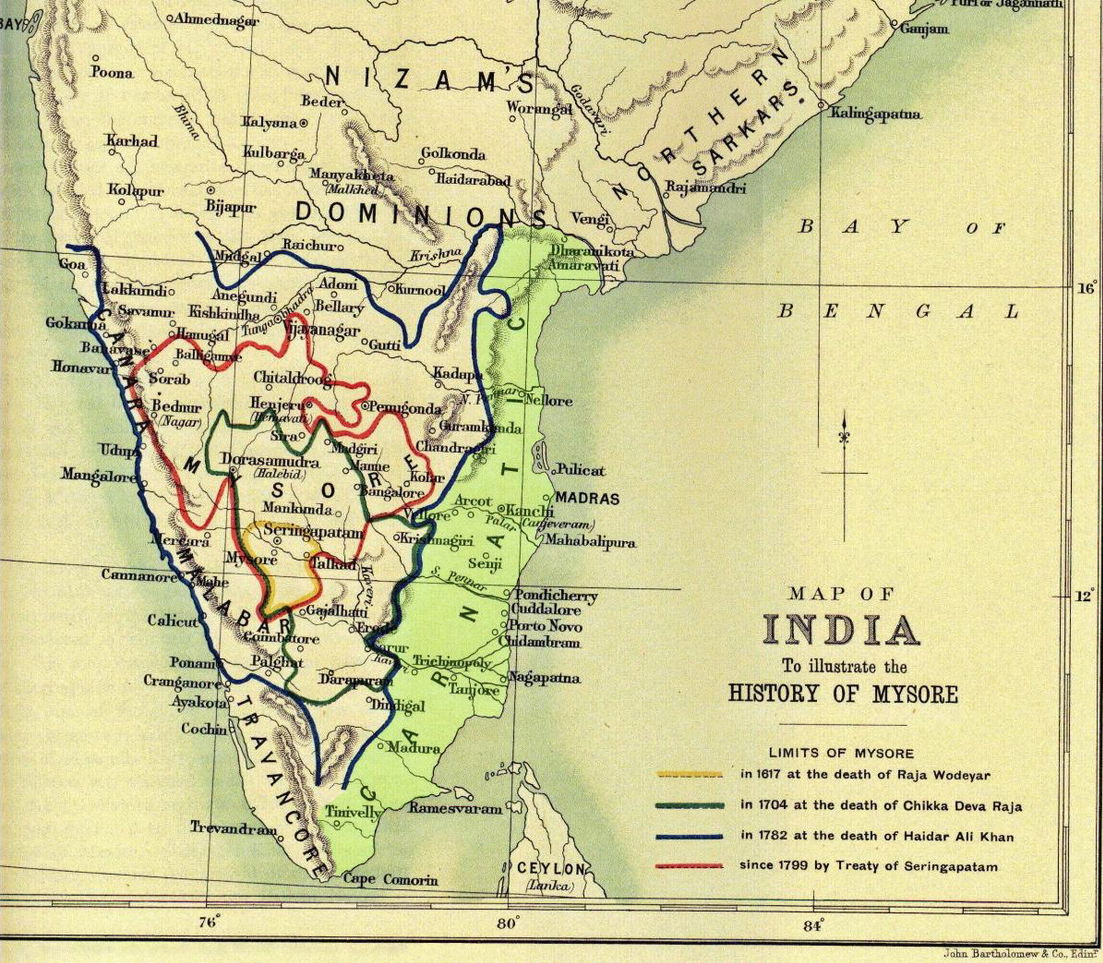
Ere long, events occurred which called him into action. In 1748, Chunda Sahib laid claim to the right of being Nabob of the Carnatic, and made war on the prince who governed that wealthy province. Chunda applied for aid to the French; and Dupleix, who saw a great opportunity of carrying his ambitious schemes into execution, formed an alliance with the pretender, and rendered him successful in his efforts. A battle was fought; the nabob in possession was defeated and slain; his son fled with a few adherents to Trichinopoly, and Chunda Sahib, pursuing him thither, invested the place so closely that there was little prospect of its holding out long. The English recognised the besieged prince as Nabob of the Carnatic, but they hardly felt themselves in a position to strike a blow on his behalf. It was time, however, for so completely was Dupleix carrying everything before him, that a report was circulated in Paris to the effect that he had renounced his allegiance to the French monarch, and proclaimed himself king; and that he was guarded by ten thousand men, and surrounded by all the pomp of an Oriental potentate.
It was when the French were making so great a figure, and the English interests were in so much danger of being sacrificed for want of energy, that the genius of Clive stirred him to action. He showed the authorities at Madras that a great effort must be made, and declared his readiness to make it, if they would furnish the means. He proposed to attack Arcot, the capital of the Carnatic, and argued that, if a daring blow were struck there, the siege of Trichinopoly would likely be raised. The authorities, awake to the extent of their danger, consented; and Clive, now twenty-five, was placed at the head of five hundred soldiers — two hundred of whom were English, and the remainder sepoys, armed and disciplined after the European fashion. The weather was unusually stormy — the lightning flashed and the thunder rolled; but Clive marched calmly and determinedly forward to Arcot. His first exploit was more easily performed than he had anticipated; for the garrison, hearing that an English army was pushing rapidly on towards their gates through thunder and lightning, evacuated the fort in a panic, and Clive took possession of Arcot without the semblance of resistance.
Far from being unduly elated with his unexpected success, Clive felt that his situation was the reverse of secure; and entertaining little hope of being left undisturbed with his conquest, he made preparations to defend the fortress he had so boldly, yet so easily, won. His prescience was very soon vindicated. The garrison, reinforced by the inhabitants of the surrounding country till the force numbered three thousand men, returned, and encamped close to the city. Even at this Clive was not dismayed. At dead of night he sallied out, set upon them suddenly in their camp, slew great numbers, dispersed the survivors, and returned with his army within the walls, without having lost a single man.
The danger, it is true, was by no means at an end. When news of Clive’s seizure of Arcot reached Trichinopoly, which the Chunda Sahib and his French allies were still besieging, they resolved upon measures for its recovery. Four thousand men were detached with that view; and this force, led by Rajah Sahib, the son of Chunda, and increased on its march to many thousands, invested Arcot without any very grave doubt of triumph. The city, indeed, appeared in no condition to make any prolonged defence, but the genius of Clive wrought wonders; and, for more than seven weeks, the little garrison struggled with a gallantry which rendered the assailants desperate. The Rajah, weary of waiting before the place, attempted to negotiate, and offered bribes in case of its being surrendered. Clive rejected all his proposals with haughty scorn. The Rajah then declared, that if the terms he named were not accepted, he would take the place by assault, and put every man it contained to the sword. Clive recommended him to pause before sending such a rabble as his army into a breach that was defended by Englishmen.
The Rajah’s flesh and blood could stand no more. He determined to storm the town; and selecting a great Mohammedan festival for the occasion, administered intoxicating drink to add to the religious zeal of the besiegers. Thus stimulated, his soldiers rushed furiously to the attack, driving before their ranks elephants, whose foreheads were armed with iron plates. It was expected that the gates would yield to the shock of these huge beasts; but their power was never put to the test. No sooner did the cannon-balls begin to fly, than the elephants wheeled furiously round, trampling and crushing the soldiers who had urged them forward.
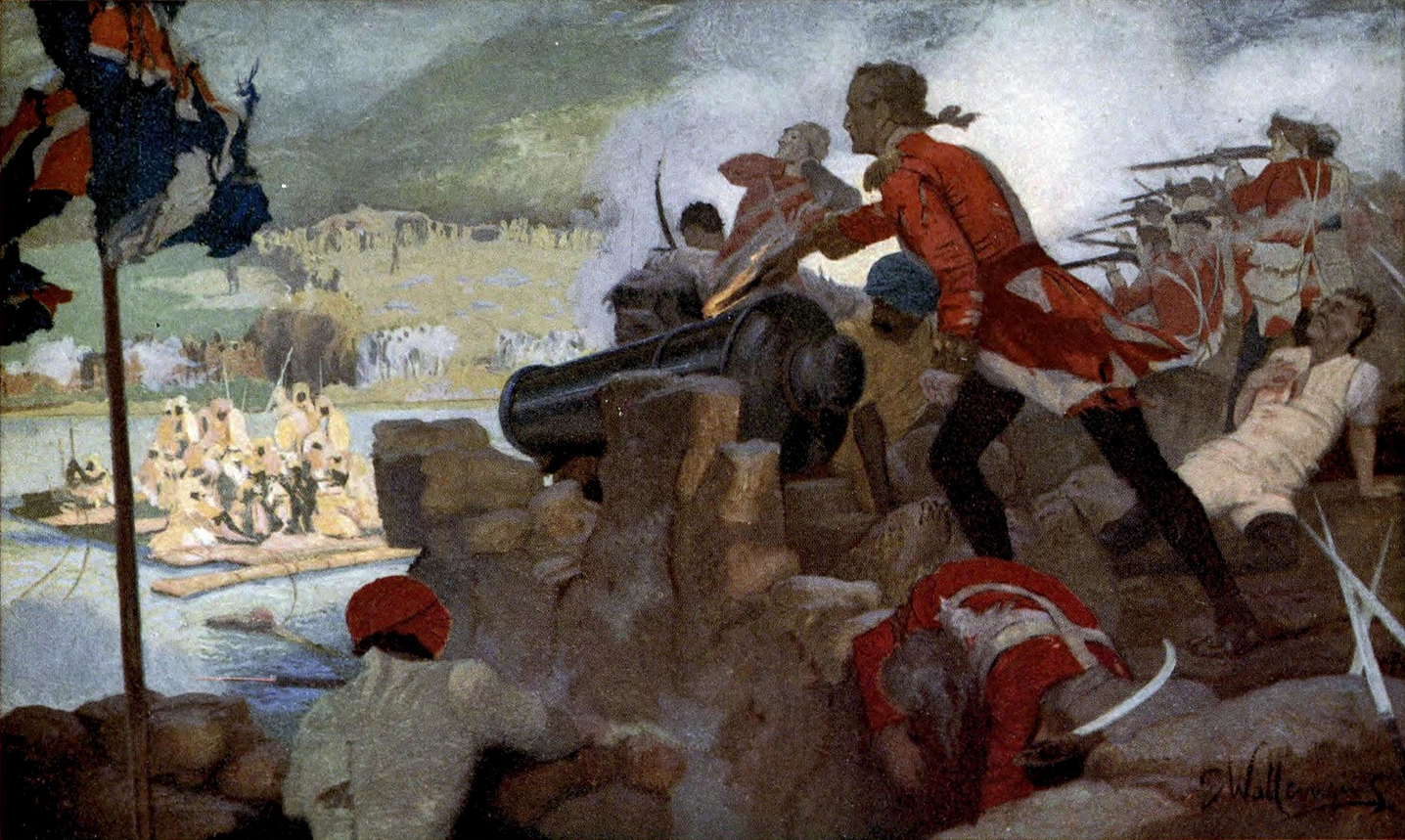
Clive now exerted himself with signal valour; wherever the defenders were weakest, there he was: and the assailants everywhere met with so hot a reception that, after three desperate onsets, they retired with considerable loss. Nor did they deem it politic to renew the conflict. When the sun rose next day, the army of Rajah Sahib was nowhere to be seen.
In due time, the news of Clive’s successful defence of Arcot reached Fort St. George, and several hundred men were despatched to reinforce him. He then commenced offensive operations with great vigour, took the fort of Timery, effected a junction with a Mahratta chief, defeated Rajah Sahib at the head of five thousand men, encountered the rajah again with equal success, and marched in triumph from the field of battle to Fort St. David — destroying, on the way, “the city of the victory of Dupleix,” which had been erected as a monument to commemorate the triumphs of France in the East.
Clive’s name was now a host in itself. Under his auspices, the English were everywhere victorious, and obstacle after obstacle yielded to the determination of his will. Trichinopoly was relieved; Covelong and Chingleput were wrested from the French. It was in vain that Dupleix struggled against his fate; all would not do. The influence of England was visibly increasing, and likely to increase. This change in the aspect of affairs was entirely owing to the valour and genius of Clive.
While Clive was on a visit to England, in 1755, there appeared a prospect of a new and serious war with France; and the expediency of having an able commander in the East being obvious, the Company appointed him Governor of Fort St. David, while the king gave him a commission as lieutenant-general in the English army. Clive was accompanied to the East by several gentlemen-volunteers, whose adventurous spirit led them to seek fame and fortune in a land supposed to abound in gold. Clive had reached India, and proceeded to Fort St. David, when news arrived at Madras which roused all his energies, and gave an opportunity for the exercise of all his faculties.
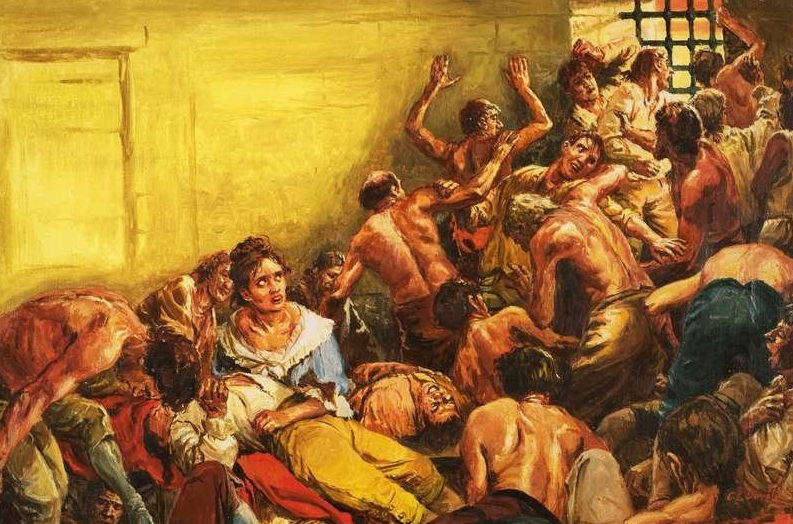
The intelligence was such as to make the flesh creep and the blood curdle. It was to the effect that Surajah Dowlah, the Nabob of Bengal, a boy in his teens, had marched upon Calcutta; that the fort had been taken after a feeble resistance; that a number of English had fallen as prisoners into the nabob’s power; that a hundred and forty-six persons had been shut for a whole night in the Black Hole, a chamber where one European could hardly have existed without much suffering, in such a climate; that the unfortunate captives had been rendered delirious by thirst and despair; that the night had been one long scene of horrors and madness; and that, when morning came, only twenty-three of them had been found alive, and these in a condition so fearful that they would hardly have been recognised by their most familiar friends.
When, in August 1756, the news of this horrible atrocity reached Madras, there arose a cry for vengeance; and the authorities resolved to send an expedition to the Hoogley. Preparations were made forthwith; Clive was placed at the head of the troops; and the expedition having sailed, and made its way against contrary winds, reached Bengal about the close of the year. Clive lost no time. He landed, commenced operations, and was proceeding with his wonted success, when the nabob marched to Calcutta to encounter him. Seeing, however, how matters were going, Surajah Dowlah offered to negotiate — to restore the factory to the English — and to make compensation for their losses. Clive, finding his power limited, was fain to entertain the proposition, but did not fail to express his regret that the business should not be concluded in a way that would redound more to the honour of England.
Negotiations were speedily opened, and the nabob behaved with the utmost folly and perfidy. He had no sense of dignity, no feeling of honour, and his conduct, in various respects, so disgusted his own subjects that a conspiracy was formed to place the commander-in-chief, Meer Jaffier, on the throne of his master. The plot was communicated to Clive, and he consented to aid in deposing Surajah Dowlah. Meer Jaffier, on his part, promised ample compensation to the Company’s servants, and liberal rewards to the army and navy.
Matters having thus been arranged, and everything made ready for action, Clive set his men in motion towards Moorshedabad, the nabob’s capital, and wrote to that potentate a peremptory letter, setting forth the wrongs of the English, and demanding satisfaction. The nabob, thus pressed, mustered a mighty army, and advanced to Plassey, where he encamped. Clive, on reaching Cossimbusar, a few miles from Plassey, found himself in an awkward position; for Meer Jaffier, who had agreed to draw off from the nabob and join him, lost heart, and the English captain hesitated to encounter an army of well-nigh sixty thousand men, with only a twentieth of that number. His anxiety became intense; for he began to feel that nothing but the certainty of victory could justify him in crossing the river that ran between him and the enemy.
In this critical posture, Clive felt his responsibility so acutely that he shrank from deciding for himself, and called a council of war. The council declared the hazard too great; and Clive concurred in the view taken. But no sooner did the meeting break up than his opinion began to change. It was not his nature to fear, and perhaps he was somewhat ashamed of indecision so unusual with him. At all events, he is said to have passed an hour in solitary musing, and when it was over, his decision of character had returned. His resolution was formed. He was determined to run all risks, and issued orders that next morning, whatever the consequences, the army should pass over. At the appointed time the river was accordingly passed, and in the evening, after a toil some day’s march, Clive and his handful of soldiers took up their quarters in a grove of mango-trees, so near the vast army of the nabob that the sound of cymbals and drums prevented them from enjoying the sleep which they so much needed. On the morning of the 23rd June they rose to fight the battle of Plassey.
The nabob did not keep them waiting. At daybreak, he moved his army towards the place where the English lay; and Clive, looking from the mango grove, could see with his own eyes whom he had to encounter. Fifteen thousand horsemen, who appeared no contemptible antagonists; forty thousand footmen, fifty pieces of large ordnance drawn by white oxen, and pushed onwards by elephants; and some smaller pieces under the direction of French auxiliaries — such was the army which moved for ward to try conclusions with “Clive, the daring in war.”
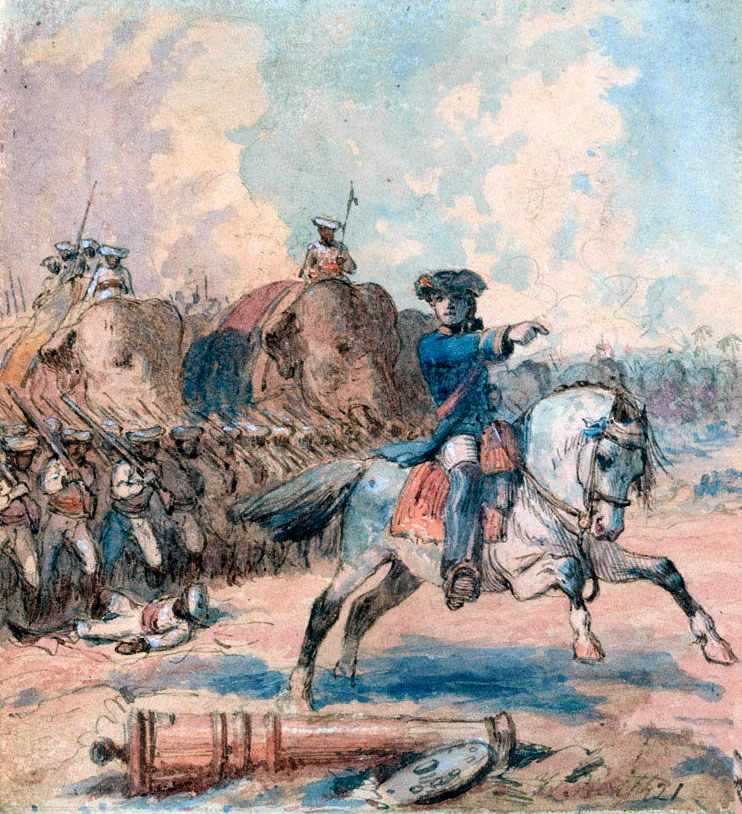
The odds, indeed, were fearful; but one thousand of Clive’s soldiers were English, who had been taught never to turn their backs upon a foe; and they awaited the attack with the courage which in all ages their country men have exhibited in such hours of peril. Fortune favours the brave. A cannonade commenced the conflict; and it happened that the guns of the nabob scarcely produced the slightest effect, while great havoc was wrought by the English field-pieces. Several of the nabob’s officers were stretched dead on the ground; and with such dismay was the huge army struck that the confusion immediately became general. The nabob him self shared the fears of his soldiers; and, in his alarm, ordered his ranks to fall back. This was a moment not to be lost by such a man as Clive. He instantly called on his troops to advance, and the English, with a rush, threw themselves upon the retiring foe. The nabob’s host, already in dismay and disorder, could not stand before such assailants. In an hour their dispersion was complete; and the battle of Plassey added another to England’s victories.
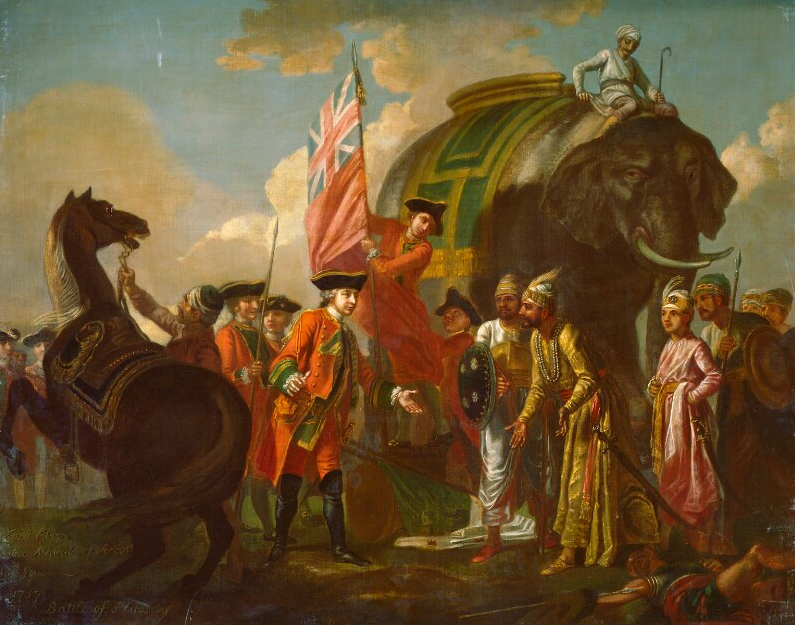
Meanwhile, Clive’s Oriental ally, Meer Jaffier, had in no way contributed to the success of the English arms. He was nevertheless anxious to reap the fruits of the great victory that had been won without his aid. No sooner was the fate of the field decided than he drew off his division, and sent to dive congratulatory messages; and coming to the English camp, he had the gratification of being saluted as nabob. In a few days dive went to Moorshedabad, witnessed the ceremony of installation, and congratulated the natives on being freed from a tyrant. Surajah Dowlah was taken while attempting to escape, and secretly murdered by a son of his successor.
The throne of Meer Jaffier, however, was not quite secure. A host of enemies soon appeared eager to depose him. Of these the most formidable was Shah Alum, son of the great Mogul. This prince raised an army of forty thousand Indians; and vowing to cast down the man whom the English had set up, threw the new nabob into the utmost alarm by investing Patna.
Meer Jaffier was indeed lost in terror. The idea of defending himself against such a force appeared to him out of the question, and he was on the point of attempting to purchase the friendship of Shah Alum with a large sum of money. Clive came to the rescue, and treated this scheme with scorn. “I beg,” said he, “that you will rely on the fidelity of the English. . . . Rest assured that the English are staunch and firm friends, and that they never desert a cause in which they have once taken part.”
Having thus expressed himself, Clive raised an army consisting of two hundred Europeans and a few thousand sepoys, and with this small force marched to relieve a city invested by forty thousand men. The terror of his name was sufficient. When the van of his little army appeared, Shah Alum was on the point of storming Patna; but no sooner did the soldiers hear that “Clive, the daring” was upon them than a general dispersion took place. In a few days the army of Shah Alum melted away, and Meer Jaffier felt a temporary security. Clive’s men had neither required to strike nor receive a blow.
Meer Jaffier was naturally very grateful to his deliverers. When placed on the throne, after the battle of Plassey, he had been lavish of his gold towards those to whom he owed his new dignity. Clive might have had what he liked: he had only to help himself. The sum he took was by no means contemptible. Two hundred and ten thousand pounds are said, at that time, to have passed into his possession. After the relief of Patna, the nabob gave a further proof of his gratitude. He made over to Clive for life the quit-rent which the Company paid yearly for lands held by them south of Calcutta. This is estimated to have been worth about twenty-eight thousand pounds a year.
It would seem that after this the nabob either thought he had paid somewhat too dear to the English for protection, or began to suspect his allies of ulterior objects. At all events, his feelings in regard to them underwent a change, and he looked about for other aid. He commenced to intrigue with the Dutch authorities at Chinsura, and was successful in persuading them to have an expedition sent from Batavia, to balance, as he expected, the power of England in Bengal. An armament equipped with this view suddenly arrived in the Hoogley, and was all the more formidable, inasmuch as Clive had, at the time, sent large detachments to oppose the French in the Carnatic.
Clive was somewhat perplexed, and not altogether undismayed. On one point he was determined — to maintain the English influence in Bengal: and he succeeded. The Dutch attempted to force a passage up the river, and join the garrison of Chinsura; but, though far superior in numbers, they were completely beaten. The English encountering them both on the land and water, took their ships, put their soldiers to the rout, and then sat down before Chinsura. The Dutch, quite humbled, submitted to a treaty. Clive’s victory was so complete that he dictated the terms.
It was natural that, after so many battles and sieges, Clive should feel desirous to return to his native country, and enjoy some years of peaceful life. Accordingly, soon after his victory over the Dutch, he set sail for England. The fame of his exploits had gone long before him; and he was the favourite popular hero of the day. Even the great Lord Chatham had, in Parliament, described Clive as “a heaven-born general who, bred to the desk, had displayed a military genius which might excite the admiration of the King of Prussia.”
The reception of Clive was all that he could have desired; and soon after reaching England he was treated with marked distinction by George III, created an Irish peer, and returned as a member of the House of Commons.
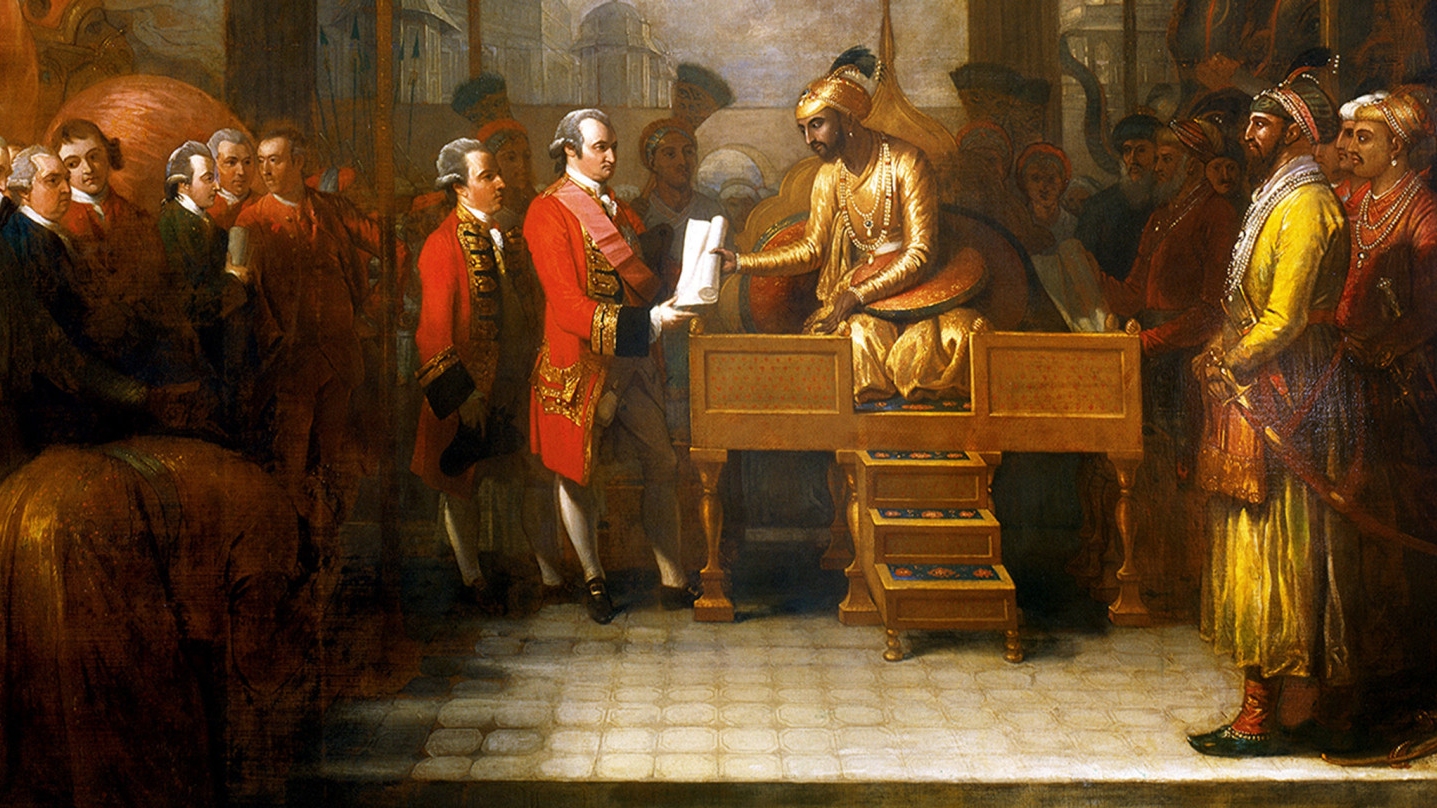
In India, however, Clive’s work was not yet over. While passing his time in England, listening to the debates in Parliament, taking part in the discussions at the East India House, buying boroughs, and building mansions, matters became so bad in India from the tyranny and corruption of the Company’s servants, that strong measures became necessary, and all eyes were turned to Clive as the man most capable of producing a reform. He consented to go to Bengal as governor and commander-in-chief of the British possessions there; and in May 1765, he arrived at Calcutta, determined to cure the evils that existed. His task was one of the utmost difficulty; but for eighteen months he applied himself to the work of reform with diligence, and having accomplished his mission, he quitted for the last time the country with whose history his name is inseparably associated. From that visit of Clive to India dates the purity of our administration in the East.
To England Clive returned in the year 1767, and then began those proceedings which embittered the remainder of his life, and brought him with sorrow to an untimely grave. The popularity which a few years earlier surrounded the name of the hero who had conquered at Plassey was vanished, and for years a storm had been gathering. Indeed, Clive was now menaced on all hands. He had enemies in India, at the India House, and in the British Parliament. What was worse, the people of England, whose pride and delight he had once been, saw all his actions in the worst light, and cursed him as one of the hated class to whom was given the name of nabobs. As he was greater than others of the odious class, so he was unpopular in proportion.
It was in 1772 that the antipathy with which Clive was regarded took form and colour. Parliament resolved upon considering the question of India, and Clive’s enemies bent their whole strength to effect his utter ruin. He was not, however, the kind of person to be beaten without a struggle. When the subject was brought before the House of Commons, he defended himself with such ability that his enemies thought it expedient to drop part of the charge. A committee was appointed to inquire into the matter, and before that committee Clive was examined. On this occasion he was pressed by the questions of every impertinent inferior. He kept his temper, however, though doubtless with difficulty. He spoke frankly on all points, and especially as to the sum with which he had been presented by Meer Jaffier. He vividly described the situation in which he was then placed, after his victory over Surajah Dowlah; how the treasury of Bengal was thrown open to him; how he was led through vaults wherein were huge piles of silver and gold, crowned with rubies and diamonds; and how, in the midst of so much treasure and so much temptation, he had only to ask and to receive. “By God ! Mr. Chairman,” exclaimed Clive, pausing in his evidence, “at this moment I stand astonished at my own moderation!”
As time passed on, the charges against Clive came in a definite form before Parliament, and again he defended himself with his wonted vigour. After reminding the assembled Commons what great services he had rendered the country, and of the grievous wrongs he had sustained, he said in conclusion : “If the resolution proposed should receive the assent of the House, I shall have nothing left that I can call my own except my paternal estate, which has been in my family for ages past. But upon this I am content to live, and perhaps I shall find more real happiness and content of mind than in the trembling affluence of an unsettled fortune. But to be called, after sixteen years have elapsed, to account for my conduct in this manner, and after an uninterrupted enjoyment of my property, to be questioned, and considered as obtaining it unwarrantably, is hard indeed, and treatment of which I should not have thought the British Senate capable. Yet I have a conscious innocence within that tells me my conduct is irreproachable. They may take from me what I have, they may, as they think, make me poor, but I will be happy. Meanwhile, before I sit down, I have but one request to make to the House — that when they come to decide on my honour, they will not forget their own.”
After having thus spoken, Clive retired from all part in the business, leaving his defence to Wedderburne, the solicitor-general, who bore himself throughout the discussion with great force and eloquence. The accusation in the end was neither established nor declared groundless. The House, indeed, decided that Clive had abused his powers, but they also voted, on the motion of Wedder- burne, a resolution to the effect that he had rendered great and meritorious services to his country.
Clive did not long survive the persecution of which he had been the victim. The malevolence of his enemies irritated him; his general unpopularity galled his feelings; his health gave way; his spirits became depressed; he took to opium; and his mind sank rapidly under various influences. At length, in the month of November 1774, despair got the better of his reason — and in his fiftieth year, the hero of Plassey died by his own hand.
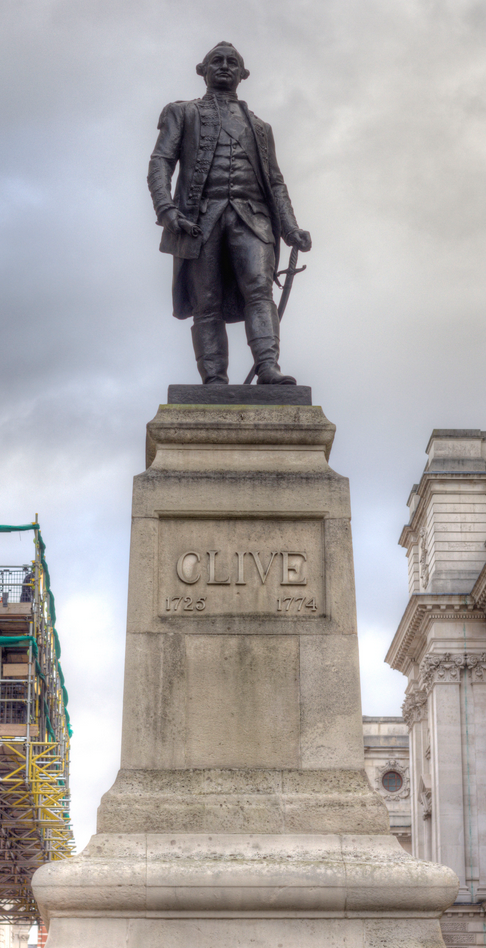
In person Clive was rather above the middle size; and his brow, naturally heavy, on account of a fulness above the eyelid, is described as having imparted a somewhat sullen expression to the countenance. Among strangers, his manner was reserved; but with his familiars he was frank, lively, and agreeable. In the House of Commons he seldom spoke; though it is clear, from the few oratorical efforts he made, that he possessed considerable eloquence. Lord Chatham, who from under the gallery listened to Clive’s defence of himself, in 1772, declared he never heard a finer speech. But it was as a warrior-statesman that he excelled, and that he is remembered. His intrepidity has rarely been equalled; and his skill as a general was quite on a par with his courage as a soldier. Indeed, with all his faults and failings, he who defended Arcot and conquered at Plassey must rank among the foremost men whom our island has produced, and occupy a high place in history among those heroes who, by their valour and genius, have added to the greatness and contributed to the glory of England.

